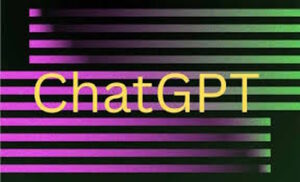ChatGPT and job boards: maybe this is a good thing?
 You knew that at some point I would weigh in on ChatGPT and job boards, didn’t you? I mean, the topic is just too juicy! As you can probably guess, I’m ‘AI-skeptical’ and have been for a while; it seems like the technology that was always ‘on the horizon‘. After all, it’s not as though the recruiting industry hasn’t dabbled already in AI-like chatbots – see Paradox’s Olivia, for example. But what seems to set ChatGPT apart from its predecessors is the size of the dataset it operates from, and the speed it creates its simulations of human responses.
You knew that at some point I would weigh in on ChatGPT and job boards, didn’t you? I mean, the topic is just too juicy! As you can probably guess, I’m ‘AI-skeptical’ and have been for a while; it seems like the technology that was always ‘on the horizon‘. After all, it’s not as though the recruiting industry hasn’t dabbled already in AI-like chatbots – see Paradox’s Olivia, for example. But what seems to set ChatGPT apart from its predecessors is the size of the dataset it operates from, and the speed it creates its simulations of human responses.
First things first: don’t forget that ChatGPT – like all chatbots – is stupid. It doesn’t understand what a dog is, or a job seeker, or a bass guitar. However, it has lots of data that puts those words in context – which gives it the ability to simulate that it in fact ‘understands’ what you mean when you ask it, ‘what is a dog?’ or even ‘can you describe a good dog?’. As Josh Bersin pointed out in a recent article, the value of this type of technology is by bringing it to bear on a specific, highly focused target – for example, hiring. Instead of burdening a fictional ‘HiringChat’ with information about the birthdate of Prince Charles or the uses of a Number 5 jack plane, you can create a deep dataset that covering every aspect of hiring, using the knowledge of as many people, studies, and other sources of data as you wish.
There’s just one catch, however: even with all of that data and processing power, your HiringChat will only do a pretty good job. Why? Because – repeat after me – the chatbot is stupid. So if HiringChat asks the candidate in an interview to describe a challenging work situation and how they resolved it, the candidate’s response won’t mean anything to the chatbot. Instead, it will be mapping the content against its dataset and essentially ‘grading’ it (in an admittedly very sophisticated fashion) as good or bad, acceptable or not acceptable. It would obviously reject responses such as ‘I killed my coworker’ as inappropriate – but it might struggle with responses such as ‘I told my supervisor what Jeff said during a late night dinner I had with him’. Is tattling on a coworker good or bad? Hmm. So I can imagine our fictional HiringChat as an improvement over perhaps 50% of the hiring managers or HR generalists out there (remember the last excruciating interview you sat through with a bored interviewer?) – but that still means that the other half will do a better job than the software does.
So where do ChatGPT and job boards fit in? I can see one clear win (although it includes a very big ‘if’). Think for a moment about how badly written most job ads are. I mean, really! Between legalese and ‘rock stars’, the job ad is almost always something that can be improved. That’s where ChatGPT and job boards can actually do something positive – if employers will let them, that is. Just imagine: every job ad that an employer submits is run through a ‘JobAdImprover’, which has been optimized by exposure to thousands of expertly written job ads (or perhaps just exposed to the collected works of Katrina Kibben!). The rewritten job ads appear on the other side of the process, creating more and better response for the employer – and the job board manages to make both employers and job seekers happy. Seems like a pipe dream, eh?
There is an ‘if’, though: the employer has to be willing to participate. I suspect many will – they understand that their job ad writing skills are weak at best. But some – and these might be the largest ones, too – will reject any rewriting. What would happen then? Well…the rewritten job ads would perform better than the untouched job ads. Some employers would be happy, and some would not. I guess that’s actually not too different from the ways thing are now!
So perhaps ChatGPT and job boards can live together, and even prosper. Remember – the above is just one ‘use case’. There could be others (automated candidate screening, for example). But never forget – you can call it ‘artificial intelligence’, but it’s still stupid in many regards. If you keep that in mind, you won’t be surprised – at least, not in a bad way!
[Want to get Job Board Doctor posts via email? Subscribe here.]. [Check out the JobBoardGeek podcast archive!]
Comments (0)